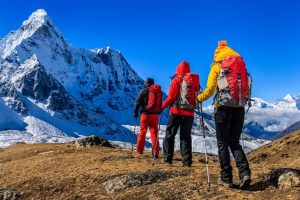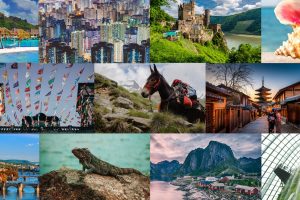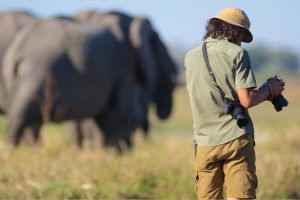Adventure tourism is a growing industry with many benefits for local communities. It can provide a boost to economies and promote biodiversity.
Some guides emphasized their ability to influence tourists’ sustainability attitudes and behaviors through “modelling behavior.” For example, they would emphasize the importance of picking up trash.
Some women reported increased empowerment due to their work in the tourism industry. However, they also pointed out that the empowerment did not take away from their other responsibilities.
Educating Locals
Adventure Tourism is a type of travel that involves participating in physical outdoor activities like hiking, cycling or wildlife viewing. It can also include cultural and wellness experiences like yoga or indigenous healing practices. It can also be referred to as “soft” or “hard” adventure depending on the level of risk involved.
One of the many benefits of adventure tourism is that it helps educate locals. By bringing travelers into their communities, locals can teach them about their culture and traditions. This can lead to a mutual understanding and respect between people from different cultures.
Educating the locals can also help them build better businesses by teaching them new skills. For example, some community tourism initiatives train locals to be tour guides or instructors. This can provide jobs that pay well and improve the quality of life for locals. It can also encourage entrepreneurship and increase their sense of self-worth. The more money they make, the more they can invest in their community.
Empowering Locals
Adventure travel is a form of tourism that supports local communities in several ways. It contributes to the development of infrastructure and helps in raising the living standards of the local people. It also helps in promoting cultural heritage and natural resources. Furthermore, it encourages the use of eco-friendly modes of transport which reduces pollution.
This form of tourism can also empower women by helping them overcome gender stereotypes and traditional norms in certain societies. In addition, it can promote self-expression and help in improving their social, economic, and physical status.
In addition, the income generated by adventure tourism stays within the country as compared to other forms of tourism which are usually dominated by multinational tour operators and hotels. This provides local residents with more opportunities to participate in decisions and to make suggestions for the sustainable development of tourism. In addition, the involvement of local residents can shift the power structure from ‘power over’ to ‘power with’ for better provision of tourism services and increased dimensions of sustainability in community-based tourism (Knight & Cottrell, 2016). This content was created collaboratively with SkiftX.
Breaking Stereotypes
As we enter a new era of community tourism it is time to shift the way we think about this industry. When done right, all of us win – local people are empowered to thrive and travelers return home with a greater sense of connectedness.
Stereotypes heavily influence your travel experience, even before you step foot on a plane. These preconceived notions taint the organic nature of your trip and prevent you from truly witnessing wonderful cultures in their genuine state.
Women’s participation in adventure tourism challenges gender stereotypes and traditional norms. It can lead to an increase in self-expression and enhance women’s sense of empowerment. This was confirmed by the study that found that women who participated in adventure tourism were able to enjoy a broader spectrum of value experiences. This was especially true for Androgynous adventurers who had a higher level of intrinsic and functional values. This was compared to Normatively Feminine and Masculine adventurers who experienced a lower spectrum of value experiences.
Creating a Positive Impact
Adventure Tourism is a great way for tourists to create a connection with nature and improve their wellbeing. It also benefits the environment by creating a virtuous circle where local communities and governments are empowered and incentivized to protect and conserve the amazing natural environments that attracted these visitors in the first place.
However, it is important for adventure tourists to understand the impacts that they can have on the environment. For example, rock climbing disturbs birds and wildlife, snorkeling damages coral reefs, and hiking disrupts the ground causing environmental depletion.
In addition, many adventure tourism companies are taking steps to reduce their environmental footprint. This includes minimizing their waste, using renewable energy sources, and creating sustainable tourism practices. They are also educating their staff on cultural awareness to avoid insensitive behavior towards local people. They are also promoting eco-friendly activities that are good for the environment and local culture. These initiatives are creating a positive impact and making it possible for more people to enjoy adventure travel in the future.





